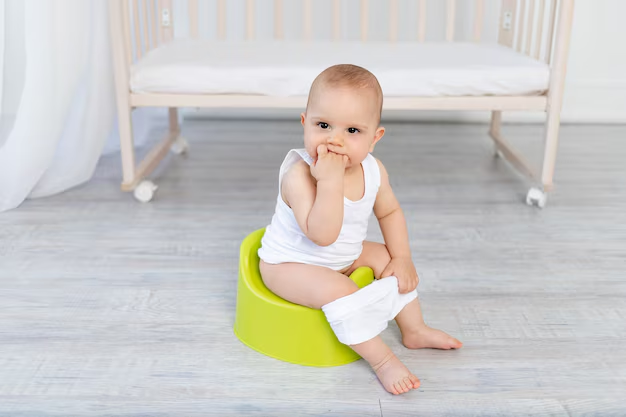Alright, let’s get something straight: potty training before your baby turns one sounds either genius or absolutely bonkers. Maybe both. But hear me out, it’s not only possible, it’s actually easier than you’d think. And no, this isn’t some bootcamp-style operation where you’re constantly cleaning up accidents or reading Freud to your six-month-old. It’s more like gentle nudging, laid-back observation, and yes, a healthy dose of “meh, let’s see what happens.”
But… Before One? Really?
Yes. The secret sauce here is that babies, even from as young as a few weeks old, have pretty reliable rhythms. It’s us adults who lost our chill and forgot how to tune in. Babies give signals. They grunt. They squirm. Sometimes they stare off into the abyss like they’re solving quantum physics. (Spoiler: they’re about to poop.)
And if you’re already changing diapers round the clock, wouldn’t it be great to just let them do their business somewhere a little less… disposable?
Welcome to the low-effort, intuitive approach to potty training.
So What Is This Magical Method?
Some people call it Elimination Communication (EC), others say it’s just parenting like your grandma did. I call it: “Potty-Optional Parenting.” It’s not about rigid schedules or sticker charts. It’s about offering a potty as an option, making it normal, and letting your baby surprise you.
Here’s what that can look like:
- You notice your baby fussing or squirming right before a regular poop time (say, right after feeding).
- You take off the diaper and hold them over a potty, a bowl, or even the sink (yup, the sink).
- You make a cue sound, like “psss” or a gentle grunt.
- They go.
- You cheer like they just won Olympic gold.
Rinse. Repeat. No stress if they don’t go.
“But I Work Full-Time, and I’m Tired, and…”
Same. This method isn’t all-or-nothing. You don’t have to throw away your diapers or start blogging about your baby’s bowel movements (unless you want to). Even catching one pee a day can help your baby become more aware of their body. That awareness builds over time, and eventually, your little human is peeing on cue like a tiny Zen monk.
Start where you are. Mornings are usually great. After naps? Gold mine. Post-feeding? Jackpot.
Honestly, think of it like offering a snack. Sometimes they eat it, sometimes they throw it on the floor.
What You Actually Need
Here’s the beauty: not much.
- A small potty (IKEA has a great one that costs less than your morning latte)
- Diapers (because you’re still going to use them)
- A decent sense of humor
- Maybe a waterproof mat or two (for your sanity)
And that’s it. You don’t need fancy books, apps, or tiny porcelain thrones.
Myths That Need Flushing
Let’s bust some myths like we’re on late-night infomercials:
“My baby isn’t developmentally ready.”
Maybe not ready to ask for the potty, but they’re absolutely ready to go when they feel the need. They already signal for milk or cuddles, right? Same deal.
“I’ll mess them up psychologically.”
Unless you’re shaming them or forcing them to sit on a freezing potty at midnight, you’re fine. This is just about gently offering an option.
“I have to be home all day.”
Nope. Even part-time EC or potty training can work beautifully. Catching just one poop in a potty saves you a diaper blowout. Worth it?
Okay, But… Why Even Bother?
Oh, I don’t know… maybe to avoid wrestling a diaper onto a toddler who suddenly thinks they’re training for American Ninja Warrior? Or to save a few hundred bucks on diapers? Maybe even to give your baby some independence and body awareness early on.
Plus, it’s kind of cool to say, “Yeah, my 10-month-old uses the potty sometimes.” People either look impressed or very confused. Both are satisfying.
Lazy Parent Wins: What Progress Looks Like
This isn’t a linear journey. Some days your baby might be totally into it. Other days? Absolute chaos. That’s parenting.
But slowly, over weeks and months, you might notice:
- Fewer poopy diapers
- A baby who fusses before going, instead of after
- The holy grail: a completely dry nap
Celebrate the small wins. This isn’t about perfection.
Tips to Keep It Chill (and Working)
- Don’t make it a big deal: Keep it casual. Like brushing teeth or putting on socks.
- Use cue sounds: Make the same sound every time you offer the potty. They’ll connect the dots.
- Watch their patterns: Babies are creatures of habit. They’re weirdly predictable.
- Stay flexible: Life happens. You skip a day? Cool. You skip a week? Still cool.
Real Talk: What Other Parents Are Saying
“We just started offering the potty after naps and I was shocked when he went the first time. It’s not perfect, but it makes diaper changes less dramatic.”
“My mom thought I was nuts until she saw my 8-month-old poop in a bowl. Now she brags about it to her friends.”
“I only do it in the mornings and before bed. He pees almost every time. Total game-changer.”
The Bottom Line (Pun Intended)
You don’t need to wait for the magical age of two. You don’t need reward charts, sticker systems, or potty training bootcamps. You don’t even need to be that consistent.
You just need to try.
Offer the potty. See what happens. Laugh when it works. Laugh harder when it doesn’t.
And remember, the goal isn’t a diaper-free baby by 11 months. The goal is connection, communication, and making your parenting life just a tiny bit easier.
Lazy parenting? Maybe.
Genius parenting? Definitely.
